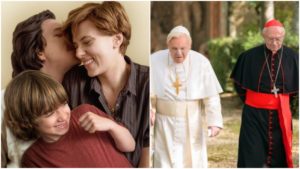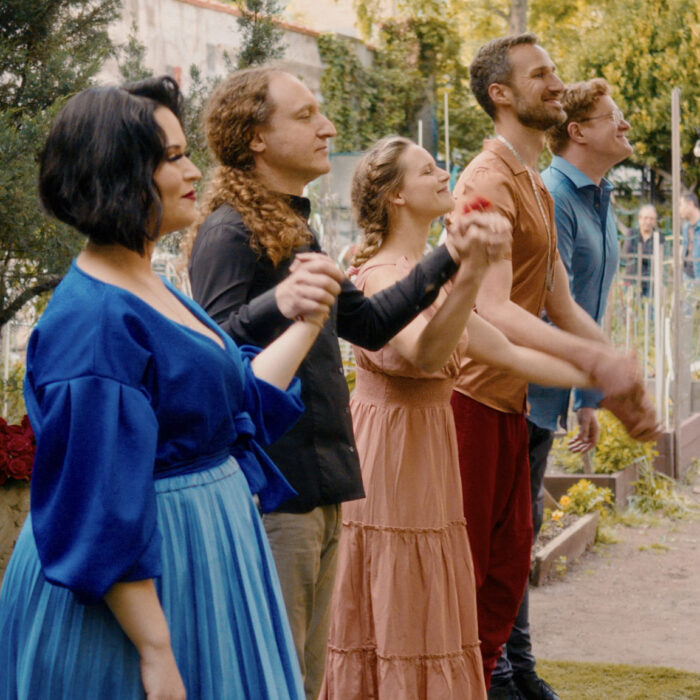
Opera Meets Film: Opera Meets Film: 2020 Oscar Nominees That Should Be Adapted Into Operas
By David SalazarLast year, we took a look at some of the Oscar Nominees to see which of them would provide suitable opera adaptations for current and future composers of the art form.
In theory, any of these ideas could be adopted into an opera with sufficient ambition and creativity, but some of the films operate very closely to the operatic language in subtle and overt ways. Here is a look at some of our picks.
Marriage Story
Noah Baumbach’s film about a couple going through divorce has all the set up for a fine opera. It centers on two characters struggling with their emotions in the context of a very real struggle to find their respective identities. The film’s structure, while linear, has an episodic feel that often compares and contrasts its two primary characters. In this structural context, an opera can easily be adapted that allows them each individual space to develop their musical language while also sparingly placing them up against each other in major climactic moments, especially in the confrontation following the courtroom scene (itself provides for some great operatic potential). The Fight, which has become a meme in some circles, has garnered attention precisely for its intensely operatic nature – characters letting their emotions drive the moment to intense degree, leaving the viewer spent emotionally.
The musical score by Randy Newman emphasizes this emotion through its tinge or nostalgic romanticism, which adds to this operatic feel.
The Two Popes
Two Popes, on the edge of history, sit in the Vatican and talk for hours, bridging the gap between their monumental differences to eventually find respect and kinship between one another. That might not seem operatic, but the minimal setting and the emphasis on two characters locked in a battle of wills that influences one of the most powerful institutions in the world is nothing if not the perfect material for opera. In fact, religion has been one of the major themes tackled throughout opera’s history as an artform, and this film provides a look at the church’s power and failures. But Meirelles’ film jumps back and forth in time to reveal deeper truths about its two central characters, which would add to the nuance of the story being explored.
The Lighthouse
Again, this film, nominated for Best Cinematography, is about two men engaged in a battle of wills. But where “The Two Popes” shows restrain and elegance, “The Lighthouse” lets loose with darker themes that explore the fracture human psyche in truly symbolic terms. It’s a film that shocks as much as it rivets, and tortures far more than it satisfies, taking the viewer on a very potent but uncomfortable journey. One imagines that a more experimental opera composer and librettist might find themselves enjoying what is undoubtedly a unique story.
Bonus: Portrait of a Lady on Fire
One of the best films of 2019, this French film never managed a single nomination. However, it is nothing but not ripe for operatic exploration. The story of a painter in the 17th century trying to create a portrait of a girl who does not want to be the subject of any such representation, the film follows the burgeoning romance between the two women with glorious nuance and depth. The film itself eschews a musical score for much of its runtime (save for a truly operatic final shot and a powerful choral interlude halfway through), opting instead to tell its story through the power of images that are musical in themselves. Still, despite the restraint, the film’s story is full of intense longing and passion that could easily work in the context of an operatic adaptation.
Extra: “Little Women” has already been composed into an opera by Mark Adamo.
Categories
Opera Meets Film

